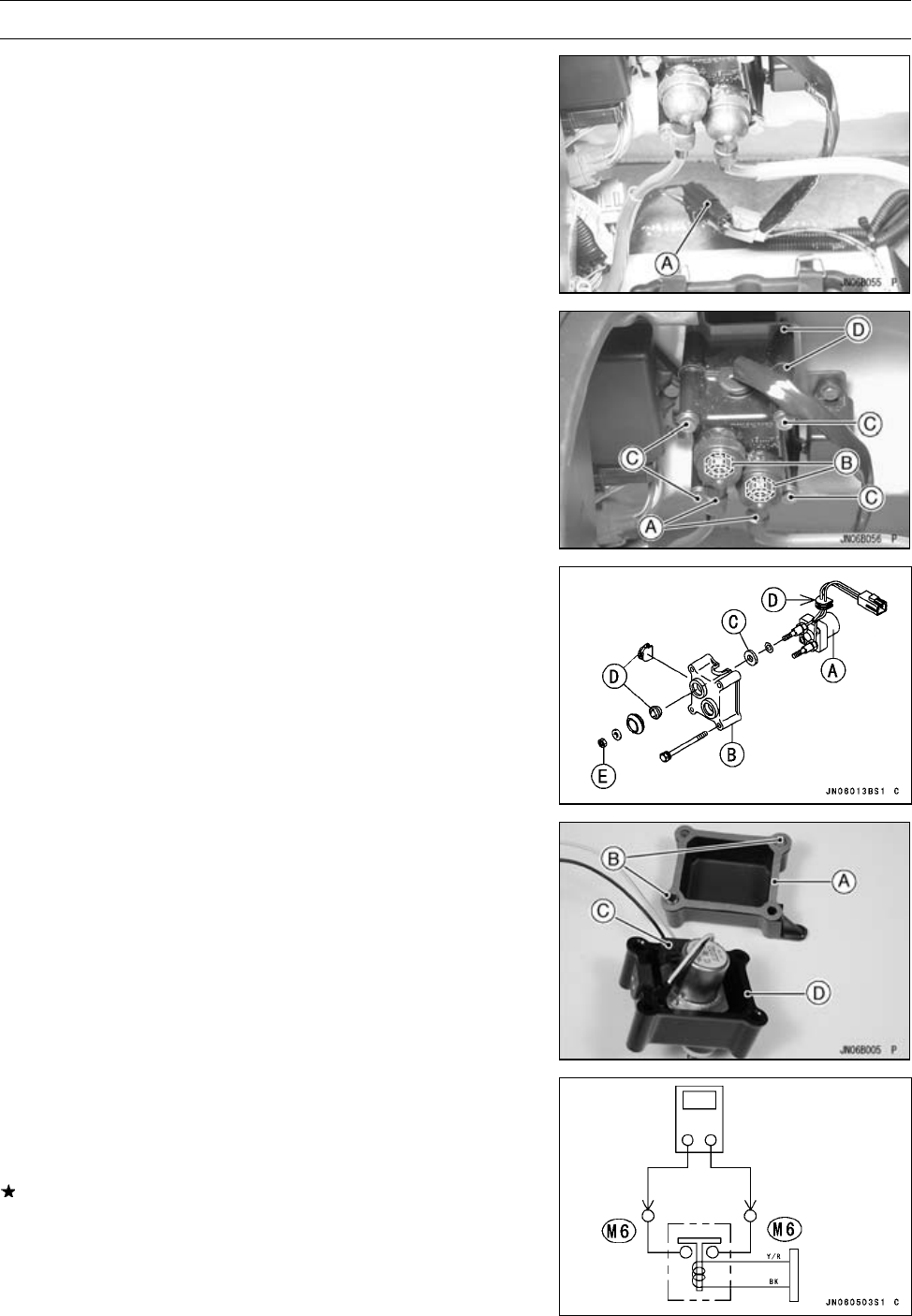
14-26 ELECTRICAL SYSTEM
Electric Starter System
Starter Relay Removal
•
Remove:
Seat (see Hull/Engine Hood chapter)
Rear Storage Pocket (see Hull/Engine Hood chapter)
Battery (see this chapter)
•
Disconnect the negative battery cable from the battery
terminal. (see Battery Removal).
•
Disconnect the starter relay lead connector [A].
•
Slide out the rubber caps [A].
•
Remove the nuts [B] from the battery and starter terminals
on the start relay switch.
•
Remove the starter relay case bolts [C] and slide the
starter relay switch from the relay case [D], being care-
ful not to lose any of the insulating washers or grommets.
Starter Relay Installation
•
Mount the starter relay switch [A] in the relay case [B].
○
Coat the insulating washers [C] and grommets [D] with
water resistant grease.
○
Be certain all insulating washers and grommets are in po-
sition.
○
Tighten the relay mounting nuts [E] securely.
Torque - St arter Relay Mounting Nuts: 4 N·m (0.40 kgf·m,
35 in·lb)
•
Replace the gasket [A] with a new one.
•
Be sure the dowel pins [B] are in position.
•
Be sure the grommet [C] is installed on the relay case [D].
•
Be sure the battery cable is connected to the battery ter-
minal having red mark.
Torque - Starter Relay Case Bolts: 7.8 N·m (0.80 kgf·m, 69
in·lb)
Starter Cable M ounting Nuts: 4 N·m (0.40 kgf·m,
35 in·lb)
Starter Relay Inspection
•
Remove the starter relay (see Starter Relay Removal).
•
Set hand tester to R × 1 Ω range.
•
Connect meter leads to starter relay as shown.
If resistance is less than infinite, the starter relay switch is
not returning and must be replaced.
Special Tool - Hand Tester: 57001-1394


















